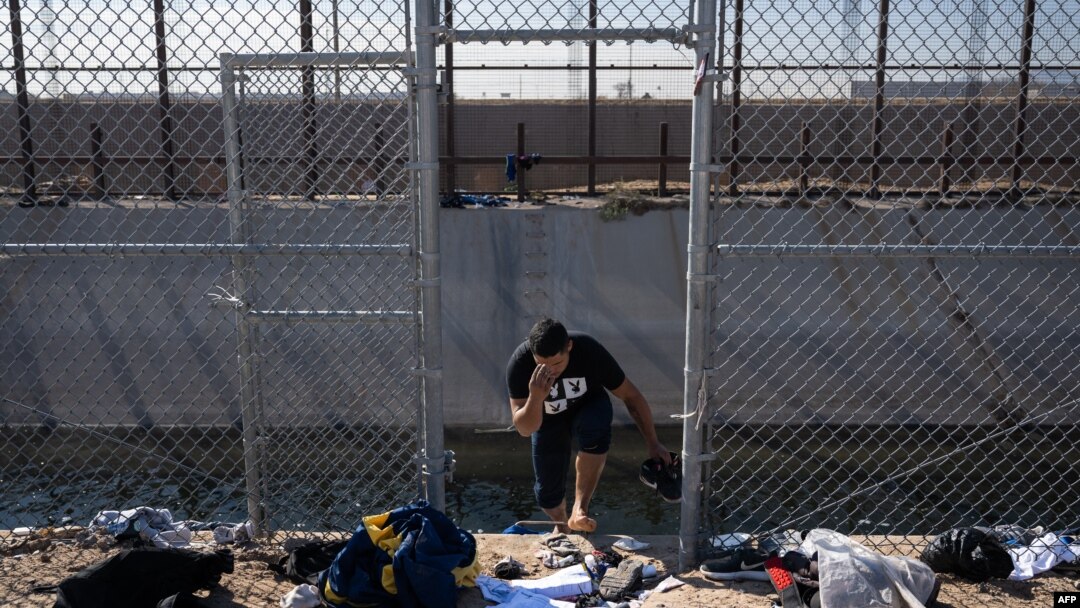"The right to seek asylum is a human right, no matter a person's origin, immigration status, nor how they arrived at an international border," the United Nations' High Commissioner for Human Rights Volker Turk said.
Last week, US President Joe Biden announced a new plan to expand a controversial rule called Title 42, making it possible to immediately turn away more people showing up at the border without clearance.
The plan permits the fast-track expulsion to Mexico of some 30,000 Venezuelans, Haitians, Cubans and Nicaraguans each month.
"These measures appear to be at variance with the prohibition of collective expulsion and the principle of non-refoulement," Turk warned.
The international principle of non-refoulement guarantees that no one should be returned to a country where they would face torture, cruel, inhuman or degrading treatment or punishment.
The UN rights office pointed out that even before the expansion, "Title 42 has already been used by US immigration officials some 2.5 million times at the southern border to expel people to Mexico or their home country without an individualized assessment of all their protection needs accompanied by due process and procedural safeguards."
The White House has said it hopes the toughened measures will stem record numbers of migrant and asylum seekers arriving after epic, often dangerous journeys organized by people smugglers.
To try to placate critics on the left, Biden said up to 30,000 qualifying migrants will be allowed into the United States each month from Cuba, Haiti, Nicaragua and Venezuela.
They must apply in their home countries, have a US sponsor and undergo background checks.
The UN rights chief said he welcomed "measures to create and expand safe and regular pathways."
But, he added, "such initiatives should not come at the expense of fundamental human rights, including the right to seek asylum and the right to an individual assessment of protection needs.
Turk also voiced concern that those most in need of asylum and those in vulnerable situations were unlikely to meet the restrictive requirements for humanitarian parole, including having a financial sponsor in the United States.
He reiterated his call for the rights of refugees and migrants to be respected and protected at international borders.
"We hear a great deal of talk about migration crises, but in reality, it is those migrating who often are the ones truly in crisis," Turk pointed out.
"Rather than vilifying them and stripping them of long-recognized rights, we should be seeking to govern migration humanely and safely with full respect for the human rights of every individual."
U.S. Border Plan Slammed by UN

FILE: A Venezuelan migrant crossing the border through a hole in the US-Mexico border wall in El Paso, Texas, on December 19, 2022. - The US Supreme Court halted the imminent removal of a key policy used since the Trump administration to block migrants at the southwest border.
The UN rights chief warned Wednesday that a new US border enforcement plan risks undermining the basic foundations of international human rights and refugee law.
GENEVA —

